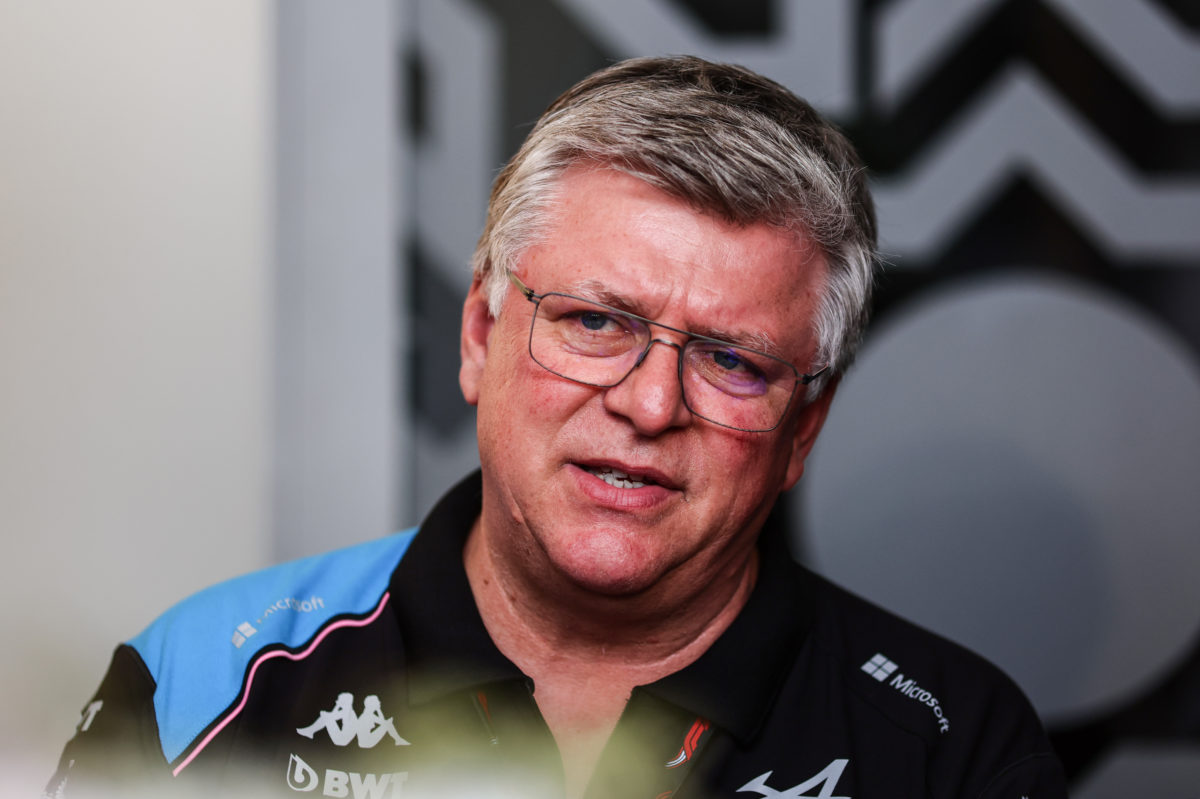
Alpine team principal Otmar Szafnauer has sounded a warning about the potential for loopholes in the F1 cost cap.
The particular area of concern for Szafnauer surrounds the increasing number of what he describes as “ancillary businesses” that are being created by Formula 1 teams.
In turn, that is seemingly allowing high-earning individuals who would ordinarily come under the cap to be removed from it even though they could potentially be working on projects or ideas that could help its F1 team.
An example put to Szafnauer is Andrew Green, a close friend of his from their time working together at Force India and Racing Point.
Green was technical director of the team prior to the appointment of Dan Fallows, leading to him taking on a more over-arching role as chief technical officer.
It was recently confirmed that Green will retain that job title but with Aston Martin Performance Technologies, an umbrella company designed to leverage its F1 knowledge in other fields.
Cost cap is enough
Red Bull, Mercedes, and McLaren are other teams that utilise their F1 expertise in companies that sit under the scope of the wider organisation.
“It seems like more and more people are looking at their well-renumerated employees for cost cap reasons,” assessed Szafnauer.
“All these ancillary businesses are now cropping up that without a budget cap wouldn’t be there.
“We’ve got to look at that to ensure the loopholes aren’t big enough to where we effectively don’t have a cap.
“The cap itself has helped Formula 1 as a whole, has driven valuations of the teams higher. The cap we have now is still 10 times anything any other racing formula spends on going motor racing, and to me, that’s enough.
“So we have to really be careful we don’t have these types of loopholes appearing that we can’t shut down.”
Hard to stop transition of ideas – Szafnauer
Szafnauer recognises, however, that ideas formulated in other arenas of an organisation cannot be stopped from flowing back to a Formula 1 team, regardless of how many days a week that person may be devoting to different projects.
Red Bull and Mercedes, in particular, are both involved in the America’s Cup, for instance.
“If you have a great Formula 1 idea because you’re working on something else, how do you account for the stuff that you thought of when you’re working on that something else and that’s just an idea?” queried Szafnauer.
“If you take that even further, it could be other things, for example, developing tools for a boat and that tool then applies to Formula 1.
“You’ve spent loads of investment on developing the tool, and then you marginally account for it in Formula 1.
“That’s the kind of stuff we have to start thinking about to stop, which is much bigger than just the inflationary stuff.”





















Discussion about this post